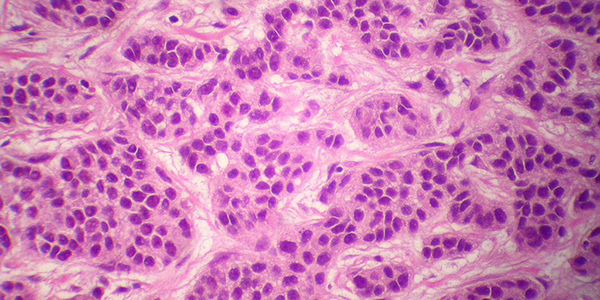Researchers have identified differences in tumor characteristics and survival in women diagnosed with de novo stage IV metastatic breast cancer compared to those with recurrent metastatic breast cancer, according to a study published in the journal Breast Cancer Research and Treatment.
The study authors found women with de novo metastatic breast cancer – a finding of metastatic breast cancer at initial diagnosis – had a five-year survival rate of 44 percent compared to 20 percent for women with recurrent metastatic breast cancer.

Over the study period, five-year survival rates for de novo metastatic breast cancer improved by 27 percent, from 28 to 55 percent, while survival rates for recurrent metastatic breast cancer decreased over time.
“We lump de novo and recurrent metastatic breast cancer in the same category with very little understanding of the differences in outcomes these patients may experience, and that’s a significant gap in our understanding of metastatic breast cancer,” said lead author Judith Malmgren, president of HealthStat Consulting, Inc. and affiliate assistant professor of epidemiology at the UW School of Public Health. “In the absence of national data, we undertook this important and needed analysis of data from a local breast cancer registry of 12,000 primary breast cancers with robust longitudinal follow up.”
Using data from the Swedish Cancer Institute Breast Cancer Registry, a retrospective analysis of more than 8,189 women with invasive breast cancer and 1,158 women diagnosed with metastatic breast cancer between 1990 and 2010 was conducted.
While incidence of de novo metastatic breast cancer remained stable and five-year survival in this group improved over time, incidence of recurrent metastatic breast cancer declined over the same period, but survival time in this group decreased. The trend for recurrent metastatic breast cancer corresponded to a decrease in HER2-positive tumors and an increase of triple negative tumors.
Across the entire cohort, worse survival was associated with hormone receptor-negative status, recurrent metastatic breast cancer, age (over 70), having more than one site of metastases, and visceral dominant metastases (liver, lung or brain).
This work represents a collaborative synthesis of ideas and objectives between the Swedish Cancer Institute and the Metastatic Breast Cancer Alliance. Study co-authors include Musa Mayer, author, patient advocate and 14-year breast cancer survivor; Mary K. Atwood, breast cancer registrar at Swedish Cancer Institute; and Henry Kaplan, chief medical oncologist at Swedish Cancer Institute and clinical professor at UW Medicine.
The study was supported by the Kaplan Cancer Research Fund and the Metastatic Breast Cancer Alliance.
